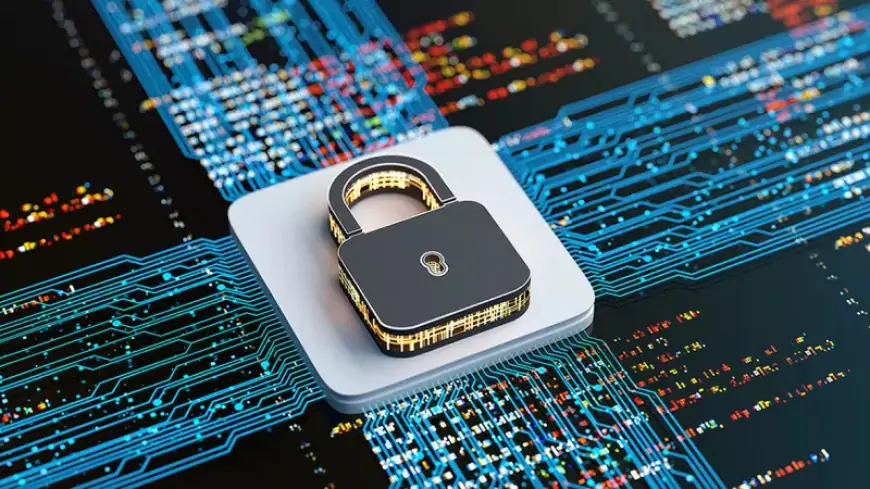What is encryption? Definition from Digimagg
Encryption is the process of encoding information to protect its confidentiality, integrity, and authenticity during transmission or storage.

If you've been following tech news lately, you've likely encountered the term "encryption." While it sounds straightforward, its application is intricate. If you're seeking a basic understanding of encryption and its role in modern devices, you're in the right spot. But let's start from scratch.
Fundamentals of cryptography
At its core, encryption is a method of concealing information to prevent immediate access. Throughout history, encryption has been employed to safeguard valuable or sensitive data, a practice known as cryptography.
A rudimentary form of encryption involves using a substitution cipher. By assigning numbers to letters in the Latin alphabet (e.g., A=1, B=2), you can encode a message using this code. While the encoded message may appear random, those familiar with the cipher can easily decipher it. For instance, the seemingly arbitrary sequence of numbers:
20 8 5 16 1 19 19 23 15 18 4 9 19 19 23 15 18 4 6 9 19 8
Cryptography during times of conflict
Cryptography finds its most critical application in warfare, where it is employed to safeguard sensitive information. Military forces rely on encryption techniques to ensure that their messages remain secure and inaccessible to adversaries in the event of interception. Simultaneously, military agencies devote significant resources to deciphering encrypted communications, aiming to unlock coded messages without possessing the original decryption key. These endeavors have substantially propelled the evolution of cryptography as a field.
Examining World War II provides two notable instances of practical encryption in action. The German armed forces employed the Enigma machine, a sophisticated electronic device capable of encoding and decoding messages with remarkable complexity, facilitating rapid and covert communication. However, through a combination of discovering daily rotating codes and employing advanced analytical techniques, the Allies successfully deciphered the encryption employed by the Enigma machines. This breakthrough granted them a significant military edge, enabling them to intercept encrypted German radio transmissions and uncover their actual contents.
However, encryption codes don't always rely on intricate mathematical algorithms. The American military employed a unique approach for their clandestine radio communications by utilizing Native American "code talkers" - soldiers fluent in languages like Comanche and Navajo. By conversing in these native tongues and employing basic word-to-letter cipher codes, the code talkers effectively communicated orders and vital information via radio. Despite the interception of these transmissions by the German, Italian, and Japanese forces, the lack of Native American speakers in their ranks rendered this relatively straightforward encryption method "unbreakable."
Contemporary digital encryption
In modern times, encryption predominantly occurs through computers. Unlike traditional methods of encrypting text or following specific patterns, electronic encryption involves scrambling individual bits of data and keys in a randomized manner. Even decrypting a small portion of this scrambled data manually, with the correct key, would require more time than a human lifespan.
Thanks to the swift computational capabilities of electronic systems, digitally encrypted data is virtually impervious to conventional decryption methods. For instance, the binary digits (bits) comprising the digital content of a file encrypted with the widely-used 128-bit Advanced Encryption Standard undergo multiple rounds of scrambling in a semi-random fashion. Attempting to reorder these bits without the key would take an astronomically long time, surpassing the lifespan of stars. Moreover, AES offers stronger variants with 192- and 256-bit key sizes.
What are the capabilities of encryption?
Every major contemporary operating system offers built-in encryption tools, including Windows, MacOS, iOS, Android, and Linux. For instance, Windows features the Bitlocker system, allowing users to encrypt their data to varying degrees, necessitating a key for access. This encryption capability extends to online file storage and personal information stored in secure locations, such as banking data.
Accessing encrypted data typically involves one of three types of keys: "something you know" (like a password or PIN), "something you have" (such as a physical encryption key like Yubico), and "something you are" (biometric authentication, like fingerprint or facial recognition). The latter two methods form the basis of Google's new passwordless "passkey" authentication system.
Encrypting the storage of your devices provides electronic protection, making it exceedingly difficult — if not nearly impossible — for unauthorized access to your data without the appropriate unlock methods. While encryption and decryption processes may slightly slow down computer storage, modern software can mitigate this performance impact.
However, if someone gains access to your password, physical key, or fingerprint, they can potentially bypass the encryption and access your data. Therefore, employing additional security measures is advisable. For instance, a common two-factor authentication system (2FA) combines a password (something you know) with a text message sent to your phone (something you have) for login purposes, adding an extra layer of security to the stored information. Additionally, using a password manager to generate unique passwords for each website or service enhances protection, preventing hackers from reusing your login credentials in case of a security breach.
While encrypting data doesn't guarantee absolute protection against unauthorized access, as there are always vulnerabilities and potential ways to circumvent security measures, leveraging even basic encryption tools can significantly enhance the security of your data compared to relying solely on default settings.












































